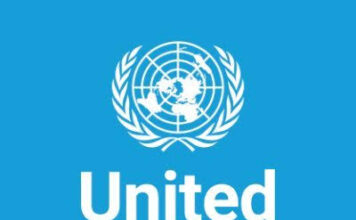At an event marking the 49th anniversary of the Economic Community of West African States, UN Deputy Secretary-General Amina Mohammed emphasized that dynamic global political, social, environmental, and security challenges are putting peace and economic progress at risk in West Africa.
Mohammed highlighted the need for a collective and inclusive approach to tackle these issues, recognizing both the advancements made by ECOWAS and the ongoing immediate challenges faced in the region.
She noted a concerning escalation in terrorism over the past decade, leading to setbacks in development efforts.
Additionally, Mohammed expressed concern over the resurgence of illegal government changes, which pose a major threat to regional stability.
Mohammed highlighted that humanitarian needs are rising amid the web of crises, “creating new dynamics, bringing new risks of conflicts, beyond the region.”
“ECOWAS at 49 serves as a reminder that the road ahead is challenging, but it is also filled with potential. This requires both a multilateral and regional response to the complexities each country faces.”
The Deputy Secretary-General emphasized the importance of collaboration, urging the utilization of existing resources while simultaneously developing innovative, joint solutions to effectively address the needs and expectations of the people.
She said, “Peace and security must underpin the ‘Vision for Africa’ in the African Union’s Agenda 2063 socio-economic development framework, with a strong emphasis on strong democratic institutions.
“The values of democracy and good governance still hold for our region. But recent developments tell us that populations are putting in question our models of democracy and the need to be made fit for purpose in line with local realities.”
She emphasized the need to tackle the underlying causes of regional conflicts to achieve stability in West Africa, and highlighted that the Sustainable Development Goals, which are crucial for a better future, are faltering in the region and require urgent attention and action to get them back on track.
“The SDGs address the global challenges we face, including those related to poverty, inequality, climate change, environmental degradation, peace and justice.
“The 17 Goals are all interconnected, and to leave no one behind, it is important that we achieve them all by 2030.
“Efforts must be stepped up to achieve the development targets by the 2030 deadline, with bold and transformative actions.”
She stressed the importance of investing in various areas, including sustainable energy, sustainable food systems, digital infrastructure, education, skills development, climate action, and social protection.
Mohammed highlighted the upcoming Summit of the Future in September as a crucial opportunity to address global governance gaps, including peace and security, as outlined in the Secretary-General’s New Agenda for Peace.
She emphasized Africa’s key role in resolving current conflicts and preventing future ones, with women playing a vital part in achieving these goals.
Mohammed added, “As negotiations for a new Pact for the Future (the outcome of the Summit of the Future) intensify, I encourage all of you to engage in all aspects.”
She reiterated the necessity for an immediate humanitarian ceasefire in Gaza, the unconditional release of all hostages, and a pathway to a lasting two-state solution.
“We are united in our call for peace, for silencing the guns across Africa, and for working to end all conflicts around the world,” she pinpointed.
